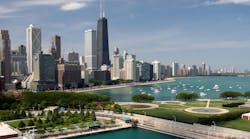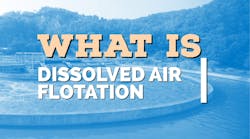Liz Breckenridge, the marketing manager for Highland Spring, said: "There has been a real change in lifestyle, with more people going to the gym, where they need water, and people looking for an alternative to alcohol or extremely sweet canned drinks. There has also been a significant growth in the awareness of consumers of the amount of water they should be drinking. They know that it is important to be drinking at least eight glasses a day."
Highland Spring, based in Auchterarder, Perthshire, is second only to the massive French company, Perrier, in the market for sparkling water in the UK, with 9 percent of the market, and third behind Evian and Volvic in the still sector with 7 percent.
A survey for the trade magazine, the Grocer, found that almost £900 million was spent on bottled water in 2001, with the sector growing in value by more than 16 percent as more households added it to their shopping list.
A spokesman for the Grocer said: "With people prepared to pay handsomely for it, bottled water continues to be the rising star in the soft drinks arena, with predictions it will storm past £1 billion sales in 2002."
According to a survey from Highland Spring, conducted in 2000, British consumers voted Scotland as the source of the purest natural mineral water, with France in second place, followed by Wales, England and Ireland.
Big sellers include Strathclyde, Caledonian Clear, Gleneagles, Findlays and Highland Spring, that all have refreshed their packaging, including tartan designs, to promote their Scottish heritage.
Several years ago, the idea of paying for water would have seemed laughable, but the remarkable success of bottled water is now a fact of life. Worries about health and the purity of food and drink are among the factors pushing up sales of bottled water, according to Zenith International, a market research company which focuses on the soft drink market.
Gary Roethenbaugh, the company’s research director, said: "People are much more aware of the health messages connected to hydration, and as water is increasingly packaged in a more user-friendly way - for example, the use of sports caps - those who buy water will buy more."
The increased availability of water has also helped sales to soar. Shops, garages, health clubs, leisure centres and, crucially, work places all stock a variety of brands and products.
However, just a third of all adults consume bottled water, with consumers in the 15 to 24 age group the most likely to drink it.
Despite the fact that consumers can buy tap water for less than 1p a litre, the bottled water phenomenon has continued to grow, with women less likely than men to be satisfied with the quality of tap water.
Those in the south of England and in Scotland are most likely to be happy with the taste of their tap water, with Londoners and those living in the East Anglia/Midlands area reporting the least satisfaction.
The latter two regions have a slightly higher percentage of consumers (London with 12 percent and East Anglia/Midlands with 16 percent) who buy bottled water because they regard the quality of tap water in their area to be poor.
Source: Scotsman.com

